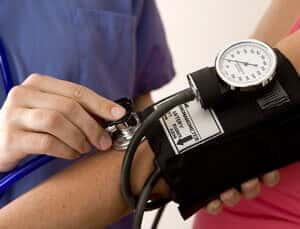
Prepare for whiplash. A year ago the American College of Cardiology (ACC) and the American Heart Association (AHA) issued new guidelines for treating mild hypertension. People with blood pressure at or above 130/80 were labeled hypertensive. Doctors were told to get it down! Over 100 million people (half of all U.S. adults) were affected by those recommendations. Now, a study published in JAMA Internal Medicine (online, Oct. 29, 2018) suggests that there is no good evidence to support the new guidelines for treating mild hypertension.
Treating Mild Hypertension: A Fantastic Flip-Flop:
For decades physicians used common sense when it came to high blood pressure treatment. Everyone knew that severe hypertension had to be treated aggressively to prevent heart attacks, strokes and other serious damage to the body. Most people were not diagnosed with hypertension unless their blood pressure was higher than 140/90.
In 2012 the Cochrane Collaboration published a critical report on blood pressure treatment. The title:
“Benefits of antihypertensive drugs for mild hypertension are unclear.”
You can read an in depth analysis of this report at this link.
The authors concluded:
“Antihypertensive drugs used in the treatment of adults (primary prevention) with mild hypertension (systolic BP 140-159 mmHg and/or diastolic BP 90-99 mmHg) have not been shown to reduce mortality or morbidity in RCTs [randomized controlled trials]. Treatment caused 9% of patients to discontinue treatment due to adverse effects. More RCTs are needed in this prevalent population to know whether the benefits of treatment exceed the harms.”
A New Study Contradicts the AHA and the ACC Guidelines:
The 2017 guidelines encouraged doctors to begin treating mild hypertension when blood pressure reached or exceeded 130/80. If diet and lifestyle were inadequate to achieve the goal, medications would be required. The question that has remained unresolved is: does aggressive treatment with medications prevent cardiovascular complications in low-risk patients?
Now there is a new study published in JAMA Internal Medicine titled:
“Benefits and Harms of Antihypertensive Treatment in Low-Risk Patients With Mild Hypertension”
British researchers reviewed long-term medical records of adults with mild hypertension. They defined that as blood pressure between 140/90 and 159/99 without medication.
More than 19,000 people taking blood pressure pills were compared to 19,000 other patients with similar blood pressure but not taking medicine. Those are decent numbers. During the nearly six-year follow-up period, they found no evidence that treatment prevents cardiovascular disease or death.
Drilling Down on the Data:
Death is the ultimate measure of treatment success or failure. In theory, treating mild hypertension should prolong life. And the envelope please.
There were a total of 1,641 deaths during the study. The control group that did not get medications had a mortality rate of 4.08%. The mortality rate in the group of patients being treated with drugs was 4.49%. There was no significant difference between the groups. In other words, the meds did not prolong life.
When it came to things like cardiovascular disease, heart attacks, strokes or heart failure, there were no significant differences. Again, the blood pressure meds did not improve cardiovascular health. That, by the way, is heretical!
The Harms of Treating Mild Hypertension:
The medications did have side effects, however, most notably low blood pressure, fainting, electrolyte imbalance and acute kidney injury.
The authors conclude:
“The present data provide no evidence to suggest that new ACC/AHA guidelines will reduce CVD [cardiovascular disease] events in low-risk patients with mild hypertension…Furthermore, we found that long-term antihypertensive treatment in clinical practice was associated with harm attributable to adverse events, such as hypotension, syncope [fainting], electrolyte abnormalities, and acute kidney injury, although electrolyte abnormalities and acute kidney injury were sensitive to the definition of high risk used in the sensitivity analyses. Physicians should therefore be cautious when initiating new treatment in this population, and patients should be made aware of the limited evidence of efficacy for treatment in low-risk individuals.”
The People’s Pharmacy Perspective:
We are great believers in controlling dangerous hypertension. There is no doubt that the “silent killer” does great damage. For people in this category medications are absolutely necessary. No one, even those with mild hypertension, should ever stop medications without careful consultation with the prescriber!
For people with mild to moderate high blood pressure there are many other ways to control hypertension. Here is a link to an article we wrote on this very topic.
What Are Natural Ways to Lower High Blood Pressure?
Share your own story about hypertension. Have you been able to control your blood pressure without drugs? Have you ever experienced side effects from antihypertensive medicines? Other people will benefit from your experience in the comment section below.
Print this article and make it available to your physician.

